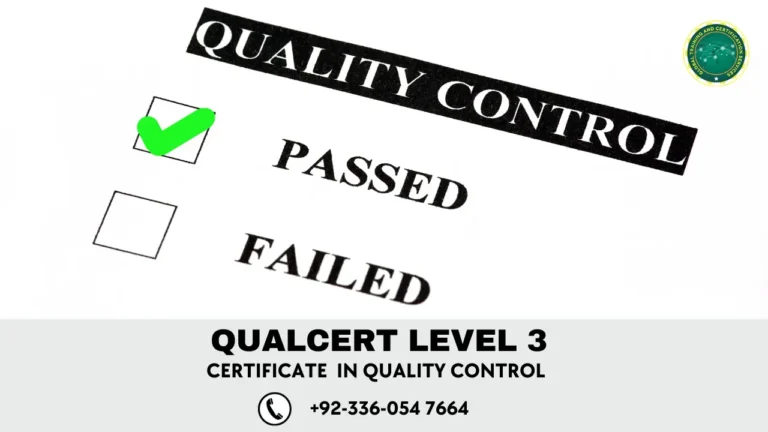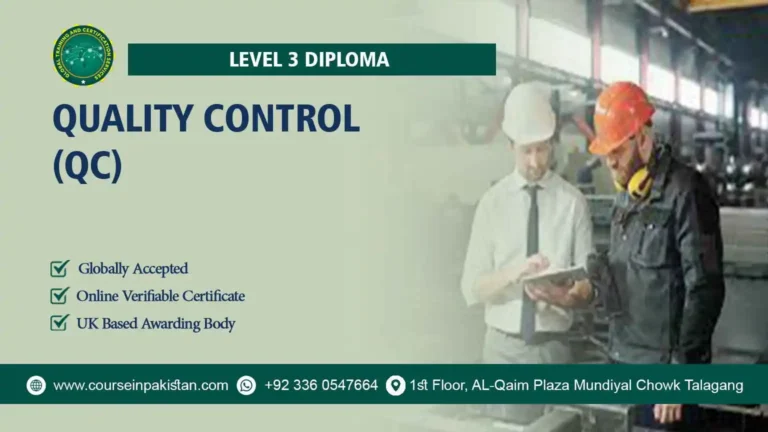
Level 2 Diploma in Civil Technology
“Empowering Futures through Excellence in Quality Control – Level 1”
Are you ready to take your career to new heights? Dreaming of a future filled with exciting opportunities, impressive job titles, and a steady climb up the corporate ladder? Look no further – the Level 2 Diploma in Civil Technology is your passport to success!
Why Choose Level 2 Diploma in Civil Technology)
- Foundation of Knowledge: This diploma program serves as a solid foundation for your career in civil technology. It equips you with essential skills and knowledge needed to excel in this field, whether you’re starting fresh or seeking to expand your existing skill set.
- High Demand Industry: Civil technology plays a crucial role in infrastructure development, urban planning, and construction projects. As urbanization continues to grow globally, there’s a constant demand for skilled professionals in civil technology. Completing this diploma opens doors to numerous job opportunities.
- Practical Learning: The Level 2 Diploma in Civil Technology is designed to provide hands-on experience. You’ll work on real-world projects, allowing you to apply theoretical knowledge to practical situations. This practical exposure is invaluable when it comes to securing employment and succeeding in your career.
- Career Advancement: Upon completion of the program, you’ll be well-prepared to enter the workforce, but it doesn’t stop there. This diploma can also serve as a stepping stone for further education and specialization in civil engineering or related fields, providing a pathway for career growth.
- Diverse Career Options: Civil technology is a diverse field with various specializations, including structural engineering, transportation engineering, environmental engineering, and more. This diploma program provides a broad foundation that allows you to explore different aspects of civil technology and choose a specialization that aligns with your interests and career goals.
- Sustainability Focus: In today’s world, sustainability is a key consideration in civil technology. This diploma program often includes modules on sustainable practices and green technology, preparing you to contribute to environmentally responsible projects.
- Industry-Relevant Skills: The curriculum is designed in consultation with industry experts, ensuring that you acquire skills and knowledge that are up-to-date and relevant to current industry standards and practices.
Your Future Awaits – Enroll Today!
The Level 2 Diploma in Civil Technology is a vocational qualification designed to provide individuals with the foundational knowledge and practical skills required to work in the field of civil technology and construction. This diploma program typically serves as an entry-level qualification for those aspiring to start a career in civil engineering or related industries.
- Entry-Level Qualification: This diploma serves as an excellent entry point for those interested in the civil engineering and construction industry. It provides foundational knowledge and skills, making it accessible for individuals with limited prior experience.
- Industry-Relevant Curriculum: The program is designed to provide a comprehensive understanding of the core principles and practices in civil technology. Students learn about topics such as surveying, construction materials, and basic engineering concepts, all of which are highly relevant to the industry.
- Practical Skills Development: Level 2 Diplomas often include a strong practical component. This means that students have the opportunity to gain hands-on experience, working with construction equipment and tools, which is invaluable for future employment.
- Career Opportunities: Graduates of this program can access a variety of entry-level positions in the civil engineering and construction sector. This includes roles such as construction technician, site supervisor assistant, and surveying assistant.
- Progression Pathway: Many Level 2 Diplomas are designed to be a stepping stone to higher education or more advanced qualifications in civil engineering. This allows individuals to continue their education and career development.
- Industry Demand: The construction industry often experiences steady demand for skilled professionals. By earning a Level 2 Diploma in Civil Technology, individuals position themselves to take advantage of these opportunities.
- Transferable Skills: In addition to specialized knowledge, students also acquire a range of transferable skills such as teamwork, problem-solving, and communication. These skills are valuable in various fields, not just civil engineering.
- Increased Earning Potential: With a diploma in civil technology, individuals are more likely to earn higher salaries than those with only a high school diploma or equivalent. As they gain experience and expertise, their earning potential can further increase.
- Contribution to Infrastructure Development: Civil technologists play a crucial role in the development of essential infrastructure projects like roads, bridges, and buildings. Graduates of this program can take pride in contributing to the improvement of their communities.
- Job Satisfaction: Working in the civil engineering and construction field can be highly rewarding, as it allows individuals to see tangible results of their efforts in the form of completed projects that benefit society.
- Fundamental Knowledge:
- Demonstrate a comprehensive understanding of the core principles and concepts in civil technology.
- Explain the key components and functions of civil engineering systems and structures.
- Technical Competence:
- Apply practical skills to assist in the design, construction, and maintenance of civil engineering projects.
- Utilize appropriate tools and equipment for various civil technology tasks safely and effectively.
- Blueprint Interpretation:
- Interpret and create engineering drawings, plans, and blueprints accurately.
- Understand and follow technical specifications and standards in project documentation.
- Problem-Solving:
- Analyze and solve common problems encountered in civil engineering projects.
- Propose innovative solutions to overcome challenges related to construction and infrastructure.
- Communication:
- Communicate effectively with team members, clients, and stakeholders in a professional and clear manner.
- Prepare written reports and documentation related to civil engineering projects.
- Health and Safety:
- Adhere to health and safety regulations and protocols in all aspects of civil engineering work.
- Identify potential hazards and take appropriate preventive measures.
- Environmental Awareness:
- Understand the environmental impact of civil engineering projects and advocate for sustainable practices.
- Implement measures to minimize the environmental footprint of construction activities.
- Quality Assurance:
- Ensure the quality and integrity of civil engineering projects through inspection and quality control processes.
- Identify and rectify construction defects and deficiencies.
- Teamwork and Collaboration:
- Work effectively as part of a team, contributing to the success of projects and fostering positive working relationships.
- Collaborate with diverse professionals within the construction industry.
- Ethical and Professional Conduct:
- Demonstrate ethical behavior and integrity in all aspects of civil technology work.
- Uphold professional standards and codes of conduct relevant to the field.
- Continuous Learning:
- Recognize the importance of lifelong learning and stay updated with advancements in civil technology.
- Seek opportunities for further education and professional development.
The Level 2 Diploma in Civil Technology is a crucial qualification for anyone aspiring to pursue a career in the field of civil engineering and construction. Here are several compelling reasons why obtaining this diploma is a wise choice:
- Fundamental Knowledge: This diploma program provides students with a solid foundation in civil technology. It covers essential topics such as construction materials, surveying, structural engineering, and project management. This knowledge is fundamental for anyone looking to work in the civil engineering and construction industry.
- Career Opportunities: Completing the Level 2 Diploma opens up various career opportunities in the civil engineering and construction sector. Whether you’re interested in becoming a civil engineering technician, construction supervisor, or project coordinator, this qualification will give you the necessary skills and knowledge to excel in your chosen career path.
- Industry Demand: The construction industry is a vital part of the global economy, and there is a consistent demand for skilled professionals in this field. With a Level 2 Diploma in Civil Technology, you’ll be better positioned to secure a job and advance in your career within this thriving industry.
- Practical Skills: The program often includes practical components and hands-on training, allowing students to gain valuable skills that are directly applicable to real-world construction projects. These skills are highly valued by employers and provide you with a competitive edge in the job market.
- Progression to Higher Education: For those who wish to continue their education, the Level 2 Diploma serves as a stepping stone to higher-level qualifications in civil engineering and related fields. It can be a pathway to pursuing a Bachelor’s degree or other advanced certifications.
- Personal Growth: Apart from technical knowledge, this diploma program also focuses on developing essential soft skills such as teamwork, communication, problem-solving, and time management. These skills are not only valuable in the workplace but also for personal growth and development.
- Salary Potential: Jobs in civil engineering and construction often offer competitive salaries and benefits, making it a financially rewarding career choice. As you gain experience and progress in your career, your earning potential can significantly increase.
- Contribution to Society: Civil engineers and construction professionals play a vital role in shaping the infrastructure of our communities. They contribute to the development of roads, bridges, buildings, and other essential structures that improve the quality of life for people. By pursuing this diploma, you can directly contribute to the betterment of society.
- Global Opportunities: The skills and knowledge acquired through this diploma program are transferable worldwide. This means that you can explore job opportunities not only in your home country but also in other countries, offering a broad range of international career possibilities.
1. Introduction to Civil Engineering and Construction Technology:
- Overview of civil engineering and its role in infrastructure development.
- Historical context and evolution of construction technology.
- The importance of civil engineering in modern society.
2. Construction Materials and Methods:
- Study of common construction materials such as concrete, steel, and wood.
- Understanding material properties and their applications.
- Various construction methods and techniques.
3. Site Surveying and Measurement:
- Principles of land surveying.
- Use of surveying equipment and tools.
- Fieldwork exercises to practice accurate measurements.
4. Structural Analysis and Design Basics:
- Introduction to structural engineering.
- Analysis of basic civil engineering structures.
- Foundation design principles.
5. Computer-Aided Design (CAD) Fundamentals:
- Introduction to CAD software.
- Drafting and designing using CAD tools.
- Creating technical drawings and blueprints.
6. Communication Skills for Civil Technology:
- Developing effective written and oral communication skills.
- Preparing technical reports and documentation.
- Presentation techniques for conveying engineering ideas.
7. Workplace Skills and Ethics:
- Professional ethics and conduct in the civil engineering industry.
- Teamwork and collaboration within a construction team.
- Problem-solving and decision-making in construction scenarios.
The Level 2 Diploma in Civil Technology is designed for individuals who have a keen interest in the field of civil engineering and construction technology. This course is tailored to meet the needs of a specific audience, and here’s who it is intended for:
- Aspiring Civil Technicians: This course is ideal for individuals who aspire to become civil engineering technicians. It provides a strong foundation in civil engineering principles and practices, making it suitable for those looking to enter the industry.
- High School Graduates: Recent high school graduates who have completed their basic education and are considering a career in civil engineering or construction technology can benefit greatly from this diploma program. It serves as an excellent starting point for further education and career development.
- Career Changers: If you’re considering a career change and have an interest in the construction and infrastructure sector, this course can help you acquire the necessary skills and knowledge to transition into the field of civil technology.
- Construction Industry Workers: Individuals already working in the construction industry, such as laborers or entry-level workers, who wish to advance their careers and gain a deeper understanding of civil engineering concepts and practices can also enroll in this course.
- College-bound Students: For those planning to pursue higher education in civil engineering or related fields, this diploma can serve as a stepping stone, providing a strong foundation and potentially reducing the duration of future college programs.
- Anyone Interested in Infrastructure: If you have a general interest in infrastructure development, urban planning, or the construction of roads, bridges, and buildings, this course can provide you with valuable insights and knowledge.
- Job Seekers: Individuals seeking employment opportunities in civil engineering or construction-related roles can enhance their qualifications by completing this diploma, making them more competitive in the job market.
- Continuing Education: It’s also suitable for those who have completed a Level 1 program or equivalent and want to further their education and skills in civil technology.
Entry Requirements for the Level 2 Diploma in Civil Technology Course
To ensure that participants can effectively engage with and benefit from the Level 1 Diploma in Civil Technology course, we have established the following entry requirements:
- Educational Background: Typically, participants should have a high school diploma or its equivalent (such as a GED). Some programs may require a minimum level of education, such as completion of secondary education, to ensure participants have basic academic skills.
- Language Proficiency: Proficiency in the language of instruction (usually English) is essential to comprehend complex course materials, actively participate in discussions, and complete written assignments.
- Age Requirement: Participants must be at least 18 years of age to enroll in this course.
- Industry Experience: While not always required, some programs may prefer or recommend that participants have some prior industry experience related to the field they intend to study. This can provide valuable context for understanding quality control principles.
- Level 1 CT Diploma (Recommended): While not mandatory, completion of a Level 1 Civil Technology diploma or equivalent foundational training is highly recommended.
To take admission in Based Computer course, Please visit our institute
Global Training and Certification Services
1st Floor, Al-Qaim Plaza, Mundiyal Chowk, Talagang
For any query or detailed information please call us on
+92-336-054 7664
For WhatsApp Please







